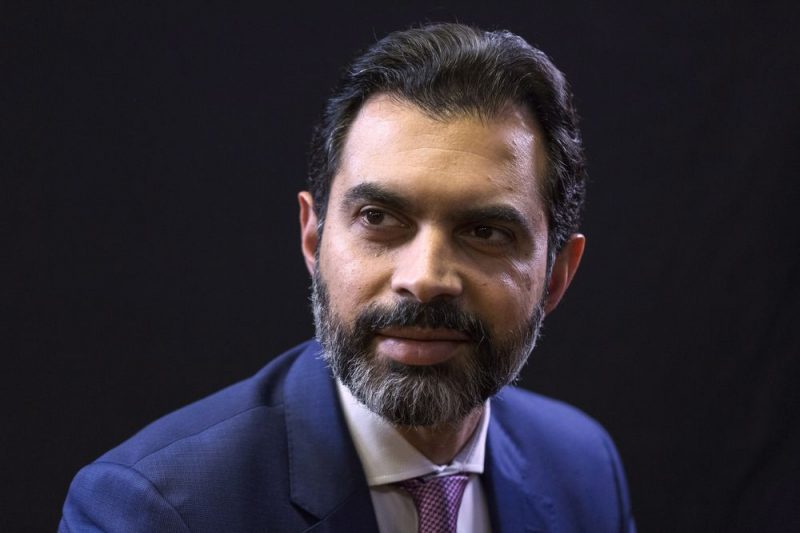Pakistan’s central bank exploring own digital coin: Reza Baqir

Pakistan’s central bank is exploring its own digital coin, the Governor, State Bank of Pakistan Reza Baqir told CNN’s Julia Chatterley on Thursday days after China became the first major economy in the world to create its own digital currency.

“We are studying that very carefully,” Baqir said expressing his views on a central bank-issued digital currency. “We are at a stage Julia where we are studying it. We hope to be able to make some announcement on that in the coming months.”
The SBP governor told the host that for now, they have allowed a framework for digital banks to begin their operations in Pakistan. These are the banks, which don’t have a brick and mortar presence and are purely digital like challenger banks or neo banks.
#CBDC, Central Bank Digital Currency in Pakistan?
“We are studying it,” says Reza Baqir, Governor @StateBank_Pak citing financial inclusion, tackling money laundering and counterterrorism as possible benefits.
/ PART 2 pic.twitter.com/bY6DFOtGPe
— Julia Chatterley (@jchatterleyCNN) April 8, 2021
The SBP governor said they are studying it (SBP’s own digital currency) as some countries such as China are already showing the way it benefits central banks.
It will not only boost the central bank efforts for financial inclusion but also allow it to make progress in its fight towards anti-money laundering and countering terrorism financing, he said.
Baqir didn’t share any details about the SBP’s own digital currency, but he said Pakistan is open to digital innovation.
“Stripe and other big payment providers are very welcome in Pakistan. It’s a market that’s waiting to burst as far as digitization is concerned,” the governor said while responding to a question on Fintechs. Explaining he said when the SBP eliminated the IBFT fee in response to the Covid-19 pandemic, its impact was phenomenal. “For the quarter that ended in December, we had a growth of about 150% to 200% compared to a year ago on mobile banking transactions. For internet banking transactions that number is around a 100% to 150% growth.”
Pakistan is a market that is home to the fifth-largest concentration of people. They are young and tech-savvy that are very fertile for such digital innovation, he added.
Earlier this week, China created its own digital currency, a cyber yuan, which is controlled by its central bank that will issue this virtual money. The fiat currency also has a digital version in the form of credit cards, payment apps, etc, but in this case, China is turning its legal tender into a computer code (think cryptocurrencies such as Bitcoin and Ethereum).
What is a digital-only currency?
A digital-only currency is in form of computer coders. There is no physical money or coins involved. A person by the name of Satoshi Nakamoto launched it in 2008 without revealing his identity.
Digital coins have become quite popular in the last decade or so as evident from the phenomenal success of the world’s first cryptocurrency: Bitcoin, which is now worth $58,000 a unit, an increase of 750% over the past 12 months. People who support the concept have called it “breakthrough technology” that will change the way financial systems work.
A cryptocurrency is different from conventional digital currencies because it bypasses intermediaries, usually a bank, and enables instant peer-to-peer payments. Nakamoto launched it in the wake of a financial crisis to give people control over their money and exclude banks or governments from the process.
It works on blockchain technology—a decentralised model of ledger. That is, no central bank or government can place any limit on its production or transfers. In a cryptocurrency, a vast network of computers validates all transactions by solving a complex mathematical problem, making it impossible to counterfeit a coin. That is it solves the problem of double-spending. These computers are called miners and whoever validates the transaction first gets a reward. That is new currency is added to the system without created inflation.
Since Bitcoin’s launch, many other cryptocurrencies—together known as AltCoins—have been introduced and become a new asset class for investors. The combined market cap of all cryptocurrencies is around $2 trillion.
The increasing popularity of cryptocurrencies has, however, become a concern for legacy banks and central banks across the world because they take control away from them and give it to the people. This money is not regulated and given the anonymity around, it can be used for tax evasion, money laundering, other criminal activities. To counter this, governments across the world are exploring different options including regulating cryptocurrencies or even launching their own digital currencies.







